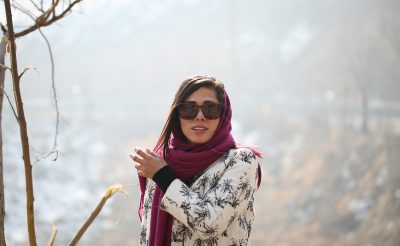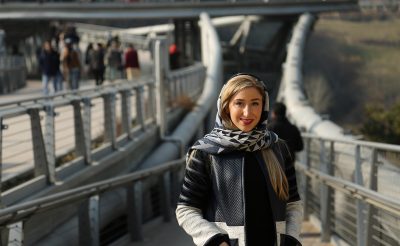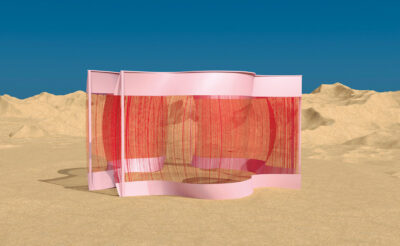At the turn of the millennium, the international image of professional sportswomen in Iran was simply not there – but, times are changing. In this four part series, we applaud women that have overcome all odds to redefine the rules. Here, we salut Farnaz Esmaeilzadeh the speed climber who shook up societal norms, training solo, to reach global acclaim.
Sixty-six kilometres northeast of Tehran lies the snowcapped Mount Damāvand, the highest peak in the Middle East. Steeped in folklore and Persian mythology, Iran’s rugged mountain terrain is a far cry from the overpopulated and exposed tourist trails that dominate the rest of Asia. In close proximity to the capital, Iran’s ranges are also highly accessible, the routes calling to rock climbers, trekkers and tourists alike with operators like Persian Pursuits opening Iran’s mountains up to an international audience. Adventure tourism in Iran has, of course, been gaining traction thanks to international sanctions being lifted, but rock-climbing has ranked as one of the most popular sports among its women for many years.
“Growing up in an athletic family and having mountaineers as parents, my rock climbing motivations were ignited,” enthuses Farnaz Esmaeilzadeh, an international speed-climbing medalist who at 27 already holds a handful of international awards, and most recently a bronze in the Asian Championships. As a child in the arid city of Zanjan, Esmaeilzadeh spent her early years climbing the small wall set up in the back of her family’s garden, and so began her passion for the world of climbing. Before long, this repetition grew tiresome and her climbing wall made way for the larger rocks that dominate her city. Wasting little time, by the age of 13 she had moved to the indoor climbing centers that had crept into the community, assembling basic techniques from her brother, Farshad, who was already a climber. “The facilities were so primitive,” she recalls, “When I was younger, I exercised alone without a suitable wall or gym to practice in.”
In the mountains of Iran, men and women climb together, reaching heights beyond those of the morality police. But, back in the cities, separation continues
In the mountains of Iran, men and women climb together, reaching heights beyond those of the morality police. But, back in the cities, separation continues. “I never had a coach at a professional level,” says Esmaeilzadeh, who admittedly never doubted her abilities. “I worked on my own weakness points, based on my own experiences.” Females like the self-taught Esmaeilzadeh are forbidden from training with male coaches, who often hold the highest credentials; centre training hours for women are also limited. And, when she’s not training, Esmaeilzadeh works with a tailor to create her own climbing attire, required to fall in line with government regulations. Yet, despite these hurdles, her self-belief and commitment is unwavering. In 2015, Esmaeilzadeh held a world ranking of 7th and 2016 saw her take second place at the Canadian championships.
A recurrent criticism amongst Persian sportswomen is their barely mediated image. It’s easy to see why many don’t take up sport when the public image of Iranian sportswomen has been non-existent until recently. Times are changing, albeit slowly, facilities are improving and international exposure offers a chance for sponsorship and recognition. Esmaeilzadeh works at a grassroots level to offer guidance to the aspiring climbers in her community. “I train women in my home city in various age categories. When I travel to different countries for my own training I send them workout plans,” she says. “I’m proud of having national champions in the toddler and teenage categories, including an Asian youth medalist.”
Tackling a sport that often evokes solitude and without a suitable coach or training partner, Esmaeilzadeh’s tireless work ethic has seen her make the difficult breakthrough to the international sports arena, gaining the recognition she knew she deserved. “I think that facing difficulties and hardness makes you stronger,” she says. “I believe that the world is granted to the hardworking.”



